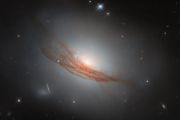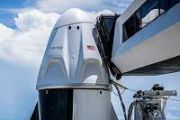
Copernical Team
Russian company develops method for effective transfer of solar energy to Earth
 Despite being one of the easiest and most accessible methods of gathering renewable energy, solar panels are unable to perform well in many spots of the world and in non-ideal weather conditions. In space, however, the effectiveness of solar panels increases significantly, prompting their wide use to power satellites and other spacecraft.
Russian Space Systems, a subsidiary of the Russian
Despite being one of the easiest and most accessible methods of gathering renewable energy, solar panels are unable to perform well in many spots of the world and in non-ideal weather conditions. In space, however, the effectiveness of solar panels increases significantly, prompting their wide use to power satellites and other spacecraft.
Russian Space Systems, a subsidiary of the Russian Advertising plays key role in satellite TV success, study shows
 The pay television market in the United States was dominated by a handful of cable operators until the early 1990s with the entry of satellite TV, which has grown consistently ever since.
A new study from the University of Notre Dame documents the role of advertising to help explain satellite operators' continued success.
"Commercial Success through Commercials? Advertising and Pay T
The pay television market in the United States was dominated by a handful of cable operators until the early 1990s with the entry of satellite TV, which has grown consistently ever since.
A new study from the University of Notre Dame documents the role of advertising to help explain satellite operators' continued success.
"Commercial Success through Commercials? Advertising and Pay T Elusive atmospheric molecule produced in a lab for the 1st time by UH
 The previously elusive methanediol molecule of importance to the organic, atmospheric science and astrochemistry communities has been synthetically produced for the first time by University of Hawai?i at Manoa researchers. Their discovery and methods were published in Proceedings of the National Academy of Sciences on December 30.
Methanediol is also known as formaldehyde monohydrate or me
The previously elusive methanediol molecule of importance to the organic, atmospheric science and astrochemistry communities has been synthetically produced for the first time by University of Hawai?i at Manoa researchers. Their discovery and methods were published in Proceedings of the National Academy of Sciences on December 30.
Methanediol is also known as formaldehyde monohydrate or me ASU instrument captures breathtaking 'first light' images
 ASU scientists and engineers building the Europa Thermal Emission Imaging System (E-THEMIS) for NASA's Europa Clipper passed a major hurdle recently by capturing the first successful test images from this complex infrared camera, known as "first light" images.
Europa Clipper, a NASA mission to investigate Jupiter's moon Europa, is planned to launch in October 2024 and arrive at Jupiter in
ASU scientists and engineers building the Europa Thermal Emission Imaging System (E-THEMIS) for NASA's Europa Clipper passed a major hurdle recently by capturing the first successful test images from this complex infrared camera, known as "first light" images.
Europa Clipper, a NASA mission to investigate Jupiter's moon Europa, is planned to launch in October 2024 and arrive at Jupiter in Gilmour Space fires up for 2022 with Australia's largest rocket engine test
 Rocket engineers at Gilmour Space Technologies have greeted the new year with a successful 110-kilonewton test fire of the most powerful rocket engine ever developed in Australia.
The 75-second test was a major milestone for Gilmour Space, which is developing Australian Made rockets that will, over the next five years, be capable of launching 300- to 4,000-kilogram satellites and payloads
Rocket engineers at Gilmour Space Technologies have greeted the new year with a successful 110-kilonewton test fire of the most powerful rocket engine ever developed in Australia.
The 75-second test was a major milestone for Gilmour Space, which is developing Australian Made rockets that will, over the next five years, be capable of launching 300- to 4,000-kilogram satellites and payloads Cheops reveals a rugby ball-shaped exoplanet

ESA’s exoplanet mission Cheops has revealed that an exoplanet orbiting its host star within a day has a deformed shape more like that of a rugby ball than a sphere. This is the first time that the deformation of an exoplanet has been detected, offering new insights into the internal structure of these star-hugging planets.
Chang'E-5 lander makes first onsite detection of water on moon
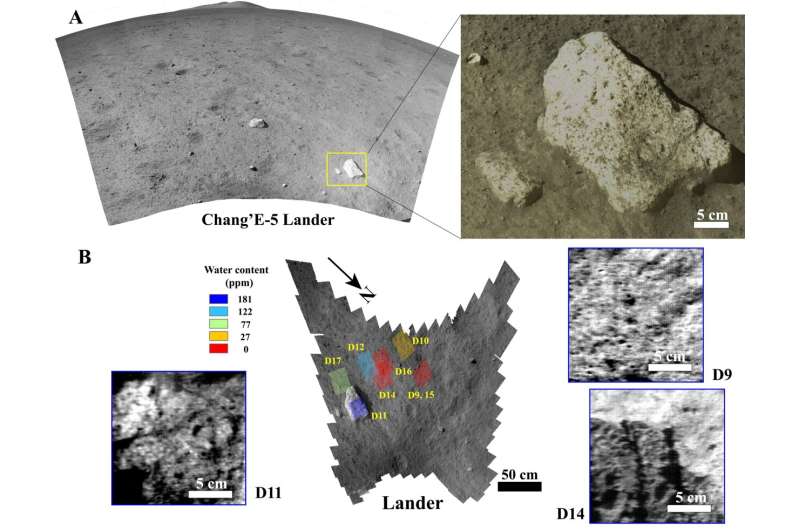
A joint research team led by Profs. Lin Yangting and Lin Honglei from the Institute of Geology and Geophysics of the Chinese Academy of Sciences (IGGCAS) observed water signals in reflectance spectral data from the lunar surface acquired by the Chang'E-5 lander, providing the first evidence of in-situ detection of water on the Moon.
The study was published in Science Advances on Jan. 7.
Researchers from the National Space Science Center of CAS, the University of Hawaiʻi at Mānoa, the Shanghai Institute of Technical Physics of CAS and Nanjing University were also involved in the study.
Many orbital observations and sample measurements completed over the past decade have presented evidence for the presence of water (as hydroxyl and/or H2O) on the moon. However, no in-situ measurements have ever been conducted on the lunar surface.
The Chang'E-5 spacecraft landed on one of the youngest mare basalts, located at a mid-high latitude on the Moon, and returned 1,731 g of samples.
What happens when someone dies in space? Space tourism brings new legal and moral issues
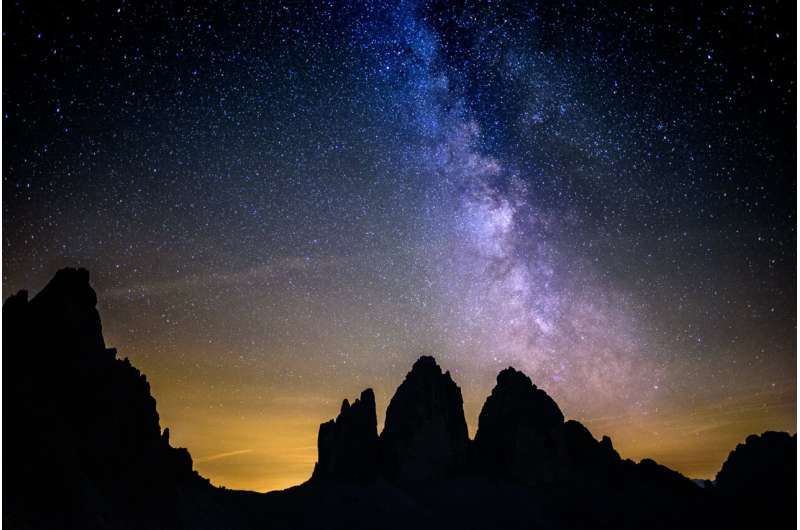
Commercial spaceflight companies such as Virgin Galactic and Blue Origin are now offering exclusive opportunities for celebrities and civilians to travel to space.
Traditionally, astronauts have been subject to rigorous training and medical scrutiny before going to space, and the risk of death from natural causes was considered remote.
But in this new era of space tourism, it appears medical screening may not be carried out, and only minimal pre-flight training provided.
With a wide variety of people now going to space, and the prospect in the coming years of humans establishing bases on the Moon and beyond, it raises an important question: what happens if someone dies in space?
Under international space law, individual countries are responsible for authorizing and supervising all national space activity, whether governmental or private. In the United States, commercial tourist spaceflights require a license for launch to be issued by the Federal Aviation Administration.
Should someone die on a commercial tourist mission, there would need to be a determination as to the cause of death.
China's rover checks out that weird cube on the moon—surprise! It's a rock.
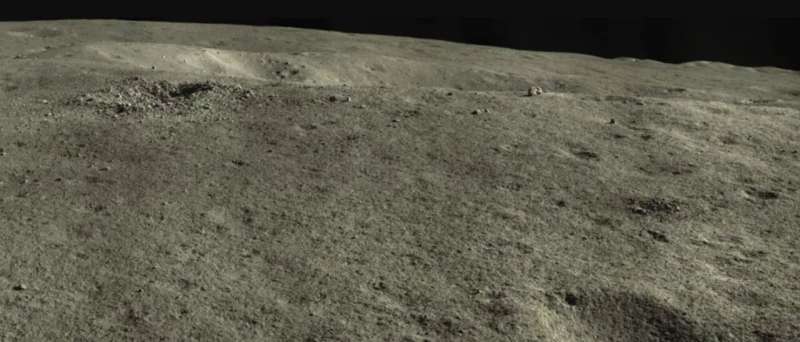
Back in early December 2021, China's Yutu 2 rover made headlines when it spied what looked like a curious cube-shaped object on the moon's surface. Of course, speculations ran rampant. And it didn't help matters any when the China National Space Administration (CNSA) nicknamed the object the "mystery hut."
An update today from Yutu's cameras reveals the true nature of this object. Yup, it's just a rock. And not very cube-shaped, either.
Several planetary geologists and astronomers had logically predicted the object was likely a just bright colored, blocky boulder sitting on the edge of a crater rim. Orbital images from the Lunar Reconnaissance Orbiter didn't show anything out of the ordinary—rocks and more rocks on a cratered lunar surface.
ESA reignites space-based solar power research
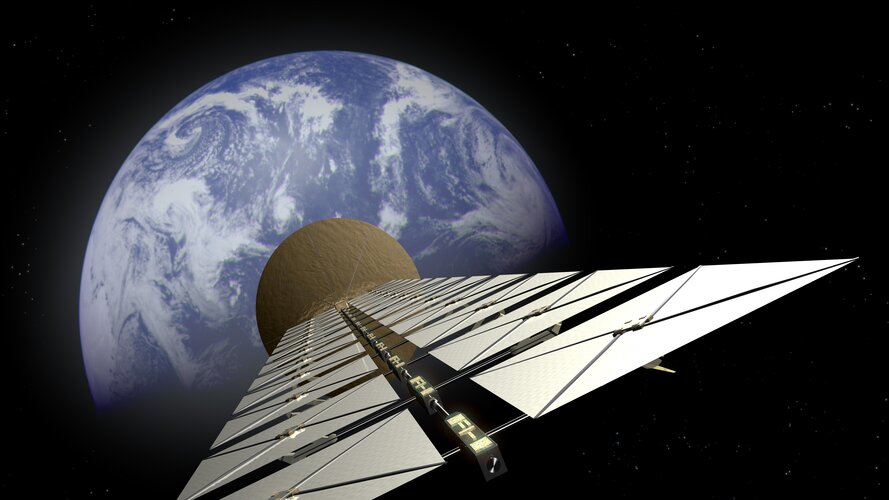
We urgently need solutions to tackle climate change on Earth. Meanwhile, the space sector is working hard to make space exploration more sustainable. ESA is targeting both ambitions by enabling European academia and industry to take further steps towards space-based solar power (SBSP).






















